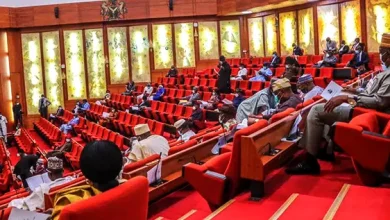
The Nigerian Government has reaffirmed its commitment to improving cancer control efforts amid a rising burden of the disease, with nearly 288,000 cases recorded nationwide.
During the visit of the Impact Review Mission Team to Nigeria, Tunji Alausa, Minister of State for Health, emphasized the need for an enhanced cancer management system, highlighting critical gaps in diagnostic infrastructure and treatment availability.
The government’s renewed focus aims to bridge these gaps through strategic partnerships and investments in healthcare reforms.
Alausa expressed appreciation for the support provided by international health organizations, acknowledging their role in advancing Nigeria’s cancer control efforts.
He highlighted that President Bola Ahmed Tinubu is dedicated to healthcare reforms, adding that the Federal Government has prioritized health sector investments.
Nigeria’s cancer care system faces significant challenges, particularly in terms of diagnostic and treatment infrastructure.
Alausa pointed out that “for a country of over 220 million people, only one positron emission tomography (PET) scanner exists, and the country lacks cyclotrons for isotope production.” Furthermore, Nigeria operates just a few linear accelerators, which are essential for advanced cancer treatment.
To address these gaps, the minister outlined several strategic initiatives, including the establishment of the National Institute of Cancer Research and Treatment (NICRAT) to serve as a cornerstone for research, prevention, and treatment.
Alausa emphasized the importance of bolstering Nigeria’s healthcare workforce, particularly through specialized training in nuclear medicine and interventional radiology.





